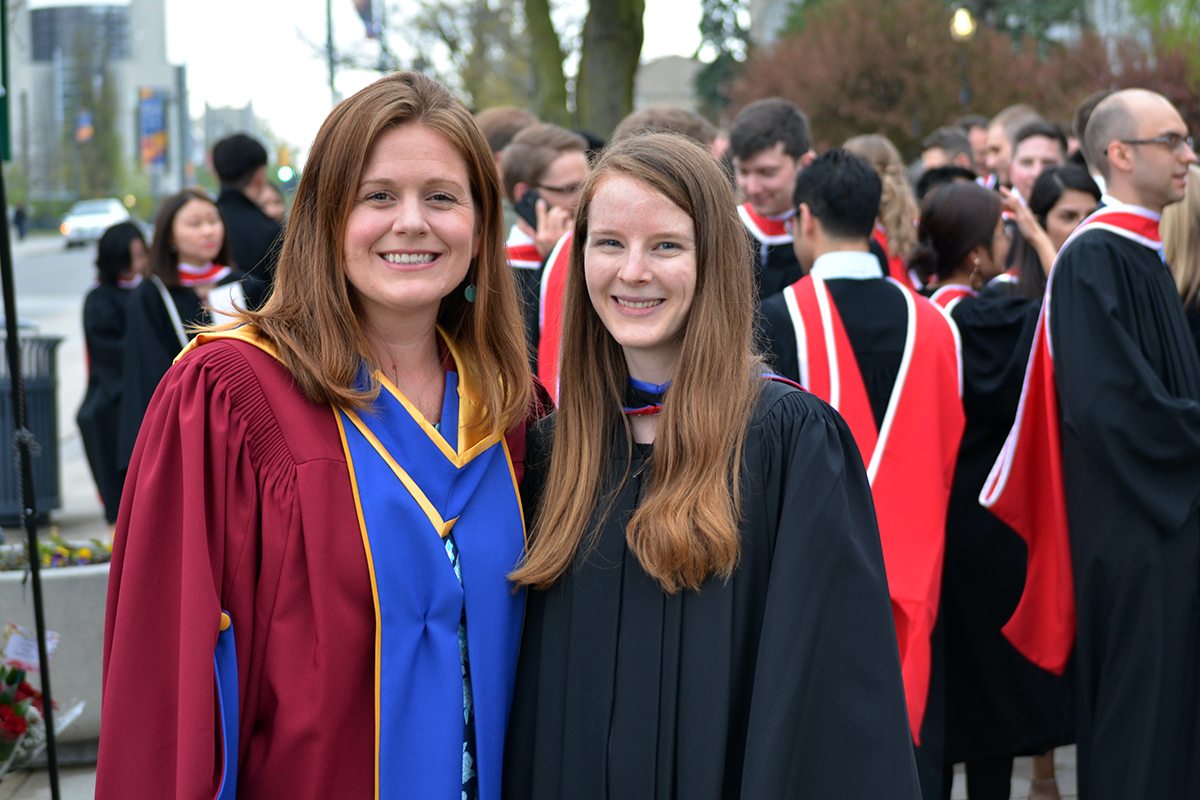Rethinking the way that we create positive spaces for our LGBTQI2S+ patients
June 20, 2019
Share

This article was first published on the Faculty of Health Sciences Dean’s Blog.
We live in an era where it is increasingly important for health care practitioners to create safe spaces for their lesbian, gay, bisexual, transgender, queer and questioning, intersex and two-spirit (LGBTQI2S+) patients.
Discrimination and marginalization are huge barriers to healthcare for people of diverse sexual or gender identities. Not feeling welcome or understood hinders the therapeutic relationship and affects how people access care, or whether they access care at all. And we know that working towards positive spaces is a way to foster safer health care environments for patients from LGBTQI2S+ communities; studies confirm this again and again.
So how do we create those positive spaces for both practitioners and patients? The traditional approach is through cultural competency training. The tools in such training focus on the provider developing a set of attitudes, knowledge, and skills that will support them in caring for and showing respect for clients of different cultures.
And yet even for the most well-meaning, creating those safe spaces and experiences isn’t as simple as relying on knowledge gained from prior trainings, such as an introduction to LGBTQI2S+ terminology.
Kathryn Allwright, who recently graduated from Queen’s Master of Nursing Science (MNSc), explored this simple yet striking nuance: humility can be more effective than competency in making positive health care spaces for people from LGBTQI2S+ community.
According to Kathryn and her research, humility requires a different approach than competency.
Rather than aiming to have health care practitioners ‘know’ the issues and concerns faced by their colleagues and patients from LGBTQI2S+ communities, humility aims to have practitioners understand that knowing is a process, rather than a destination. Each person has a unique lived experience; if we can resist assumptions and instead seek to understand each individual and their unique situation, we can shift to a state of constant learning -- and act accordingly.
Exactly how humility might be embedded into nursing practice was the focus of Kathryn’s thesis. In her initial research, Kathryn found literature demonstrating that public health nurses could make public health unit spaces safer for sexually and/or gender diverse people through a cultural humility approach. However, she found something was missing. There was no way to measure this. Public health nurses needed to be able to assess whether they were in fact using a cultural humility approach and creating positive spaces.
So, she set out to validate the effectiveness of existing self and workplace assessment tools made available by the Ontario Public Health Association. “Despite these tools being used in practice, I was unable to find any psychometric testing to support that these were valid and reliable measures for positive spaces,” Kathryn explained.
In the end, Kathryn set her sights on testing modified version of the tools that reflected cultural humility rather than competence “A cultural humility approach encompasses critical self-reflection, a commitment to lifelong learning, and a recognition of power imbalances. It was important to ensure that these components were reflected in the positive space tools” Kathryn shared. Her work yielded a 40-item self-assessment tool with 15 underlying dimensions and a 38-item workplace tool with 10 underlying dimensions.
“This Exploratory Factor Analysis is a step in the direction toward having validated and reliable tools,” Kathryn said. The next step is testing the tools with different samples to assess generalizability of the results.”
Although Kathryn has now graduated, this won’t be the end of her work on LGBTQI2S+ healthcare topics. Kathryn, alongside project partners, have launched a podcast series on trans health care topics called TransForming Rounds. You can find all episodes of TransForming Rounds.
Seeing the important work that Kathryn is doing to support diversity and inclusion is not just inspiring but brave and thought-provoking. I hope that it inspires those of you reading – whether you are a nurse, doctor, rehabilitation therapist, trainee, staff member or working outside the healthcare field altogether.
How are you incorporating humility and the idea of building safe spaces into the work that you do? I would love to hear your thoughts in the comments. Or better yet, please stop by the Macklem House: my door is always open.
Queen’s University offers positive space training through its Positive Space Program. Find out more at: queensu.ca/positivespace.